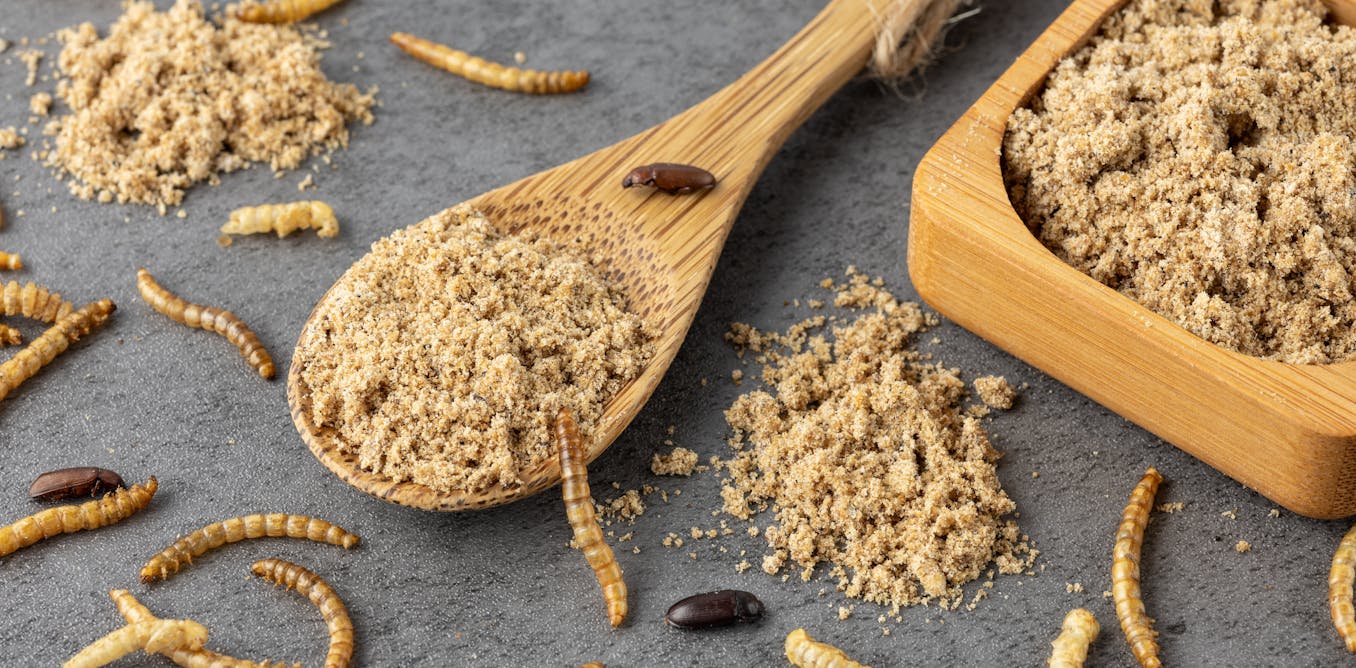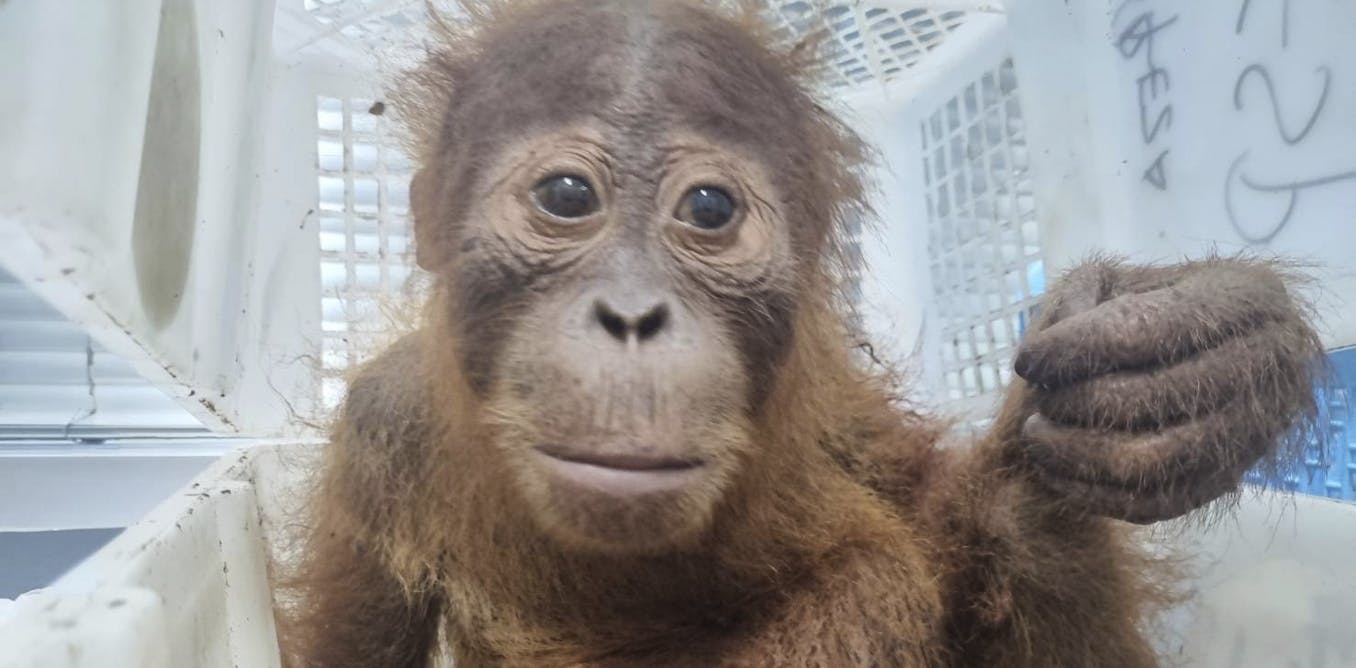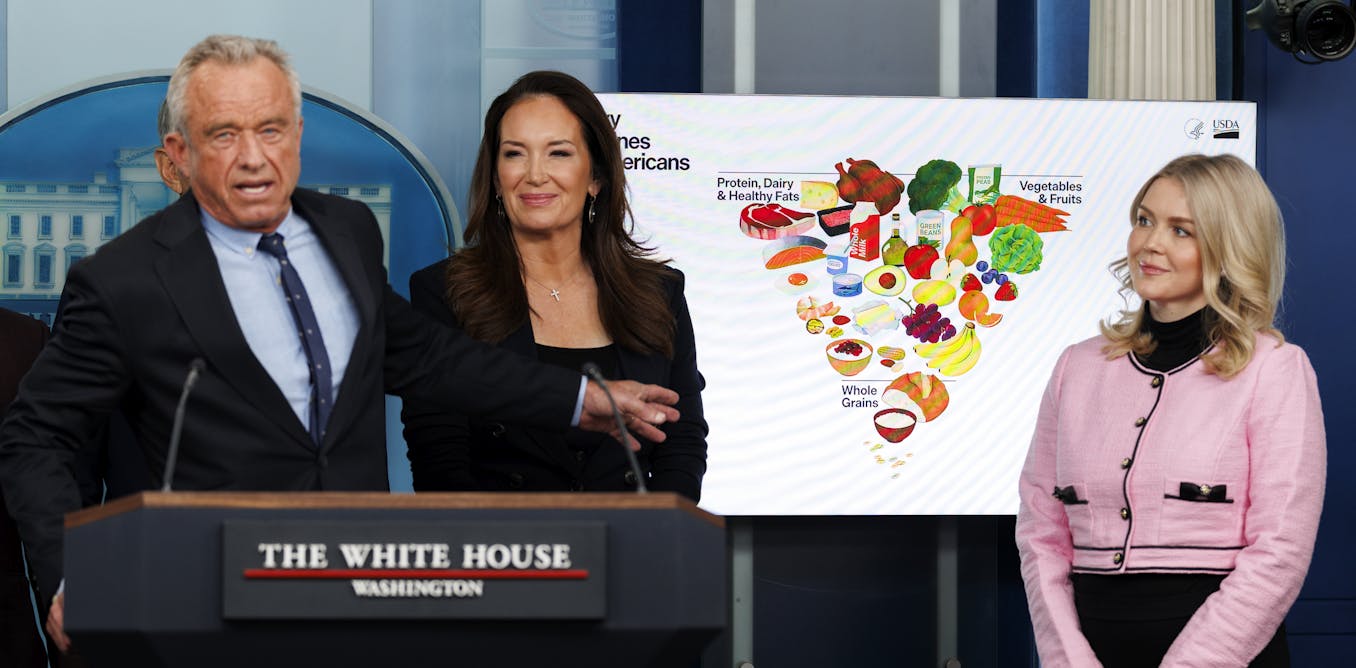Noor Bin Ladin, a right-wing influencer, stridently declares “I don’t want to eat the bugs” on a talk show hosted by a former adviser to US President Donald Trump. Laurent Duplomb, a senator from the conservative Les Républicains party in France, informs his colleagues that the French would be eating “insects without their knowledge”. Bartosz Kownacki, an MP from the nationalist Law and Justice party in Poland, suggests that opposition politicians write “instead of chicken, eat a worm” on their election materials, arguing that “this is their real election programme”. Thierry Baudet, a leader of the far-right Forum for Democracy party in the Netherlands, shouts “No way! No way!” while holding up a bag of mealworms in front of protesting farmers. Politicians in Lega, a far-right party in Italy, warn that the European Union is planning to “impose” the eating of insects on citizens in the bloc – and a Lega electoral campaign includes a billboard-sized image of a person popping an enormous cricket into their mouth, next to the caption, “Let’s change Europe before it changes us.”
A weekly e-mail in English featuring expertise from scholars and researchers. It provides an introduction to the diversity of research coming out of the continent and considers some of the key issues facing European countries. Get the newsletter!
During the 2020s, commentators and politicians across the right-wing political spectrum have amplified an Internet-based conspiracy theory that elite forces are conspiring to make us all eat insects. Often rallying under the slogan “I will not eat the bugs,” right-wing and far-right figures have come out in force against human consumption of insects. Many of these people assert that the EU is planning to force bug-eating on the general public while devastating traditional agriculture and meat consumption under the guise of the European Green Deal, the bloc’s plan to eliminate greenhouse gases by 2050 and decouple economic growth from resource use. Opposing insect-eating has become a symbolic way to protest EU environmental policies, express scepticism of and hostility toward Brussels, and villainize political opponents. Closer inspection reveals that the conspiracy theory underlying such opposition has much older and more sinister resonances.
“Spreading disinformation”
Insect eating (entomophagy) remains a minor practice in Europe and North America, although alternative protein sources do play a role in the EU’s move toward a sustainable future. So far, the European Commission has approved frozen, dried and powdered forms of Tenebrio molitor (yellow mealworm larva), Locusta migratoria (migratory locust), Acheta domesticus (house cricket) and Alphitobius diaperinus (the lesser mealworm larva) for human consumption. But the market for insect powder in foods like bread, pasta and sports bars remains small. Although insects are common food in many parts of the world, consumers in the West, where insects are more commonly used to provide protein in animal feed, are reluctant to eat bugs for historical reasons based in ideas of uncleanliness and primitiveness. So, based on the facts, there seems to be little to no reason for statements such as those made by Rumen Petkov of Bulgaria’s ABV party, who said that EU approval of insect consumption is a “crime against Europe” and that the European Commission is “prepared to kill our European children”.
What led to the rapid spread of this conspiracy theory? Noor Bin Ladin’s remarks give us a clue. During her talk show appearance, Bin Ladin described her words as a message for Klaus Schwab to take to his “masters”. Schwab is the founder and executive chair of the World Economic Forum. Early in the Covid pandemic, Schwab and the WEF produced a set of proposals titled “the Great Reset”, which called for an overhaul of various world systems to produce a stakeholder-driven capitalism that would lead to a more socially and environmentally responsible future. Conspiracists seized on and branded “the Great Reset” as a new iteration of a conspiracy theory known as the New World Order – an imagined global governance system meant to control the lives of everyone. Both the Great Reset and the New World Order lead back to much older and broader antisemitic conspiracy theories that hold that elite Jewish financiers run the world with their hands on invisible levers of power. All these narratives tap into feelings of futility and hopelessness about the future.
US right-wing media personality Tucker Carlson called a 2023 episode of his show, which included a heavy focus on Schwab and the WEF, “Let Them Eat Bugs”, a title that gestures at the remark allegedly made by Marie Antoinette, the last queen of France, when she heard about people suffering from a lack of bread before the French Revolution: “Let them eat cake”. With this title, Carlson is aiming to emphasize that the elite are hopelessly out of touch and have contempt for farmers and the average man, whom they want to force to eat bugs. Like the French bedbug scare in late 2023, right-wing alarm around insect-eating has connections to the spread of anti-EU Russian propaganda. Russian news outlets have suggested that Europeans are so poor and food deprived as a result of sanctions connected to the war in Ukraine that they have been reduced to eating insects. As the European Digital Media Observatory (EDMO) writes, insects are “delicious treats for actors with interest in spreading disinformation against the EU”.
Symbols for dehumanization
The desire to stir up fear about the minor level of European and US insect consumption is not based on the risk of rapid growth in the insect market, but on the power to arouse disgust and fear itself. Insects have long been used as symbols to stir revulsion and paint opponents as objects of physical and moral disgust. During times of political extremism, insects have featured repeatedly in efforts to distance, devalue and dehumanize minorities. Armenians were called locusts during the Armenian genocide, and Jews were compared to lice in Nazi Germany. In the period prior to the ethnic genocide of Tutsis in Rwanda, some Hutus repeatedly called Tutsis “cockroaches” on public radio. The right wing’s current fetishization of insect-eating serves as a narrative to cast political opponents as morally repulsive, even if not labelling them as bugs themselves.
For some figures on the right, insect consumption symbolizes the worst of Eurocentric liberalism – seen as a movement so void of a positive political vision that the only possible future it offers is one of impoverishment and bug-eating. They point to an elite who they claim will go on feasting on meat while forcing mealworms and fly larvae on the rest of us. It’s a potent image. At a moment in which people on the right and the left seem unable to imagine a better political future together, it becomes easier to demonize climate policy-minded leaders as a group of disgusting hypocrites plotting to create a society of contrived scarcity where the general population is reduced to eating bugs.
Meanwhile, since 2015, scientists have been releasing papers warning that the global food system shows risks of genuine structural problems. In a future of environmental disruption, trade wars and real risks of food shortages and famine, we may need all the calories we can get – insect-based or otherwise.
Read more:
‘A healthy earth may be ugly’: How literary art can help us value insect conservation
Out of curiosity, I bought a bag of cricket flour last fall. The crickets resulted in a delicious, nutty-flavoured cecina, well… crickcina. So far, none of my friends will try it. They’re missing out.

The post “examining a right-wing narrative about scarcity and insect consumption” by D. D. Moore, Visiting Fellow, Max Weber Programme for Postdoctoral Studies, European University Institute was published on 05/15/2025 by theconversation.com





































Leave a Reply